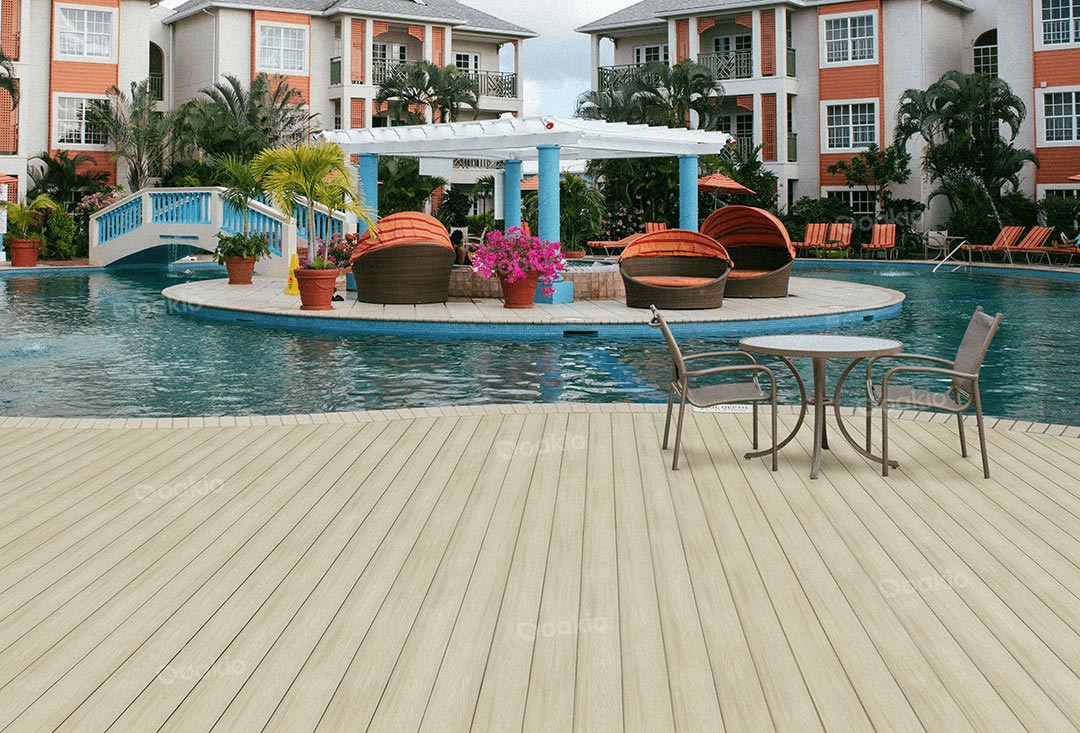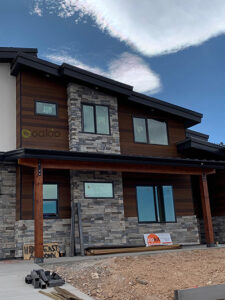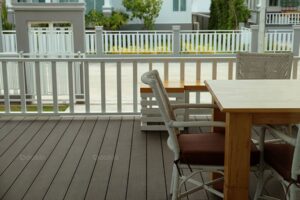Why Keep Expansion Joints When Installing WPC Decking?
Expansion joints are a crucial component in the construction and maintenance of wood-plastic composite (WPC) decking. These joints are designed to absorb and accommodate the expansion and contraction of decking materials caused by temperature fluctuations and other environmental factors. This article delves into the significance of expansion joints, their role in varying temperatures, and best practices for installation, ensuring a long-lasting and aesthetically pleasing WPC deck.

Factors Affecting WPC Expansion Joints
Several factors influence the performance and necessity of expansion joints in WPC decking. These include:
Material Composition: The ratio of wood to plastic in WPC can affect its expansion rate. Generally, a higher plastic content may lead to less expansion.
Climate: Areas with wide temperature fluctuations require more attention to expansion joint spacing.
Decking Orientation and Size: The direction in which the decking boards are laid and their dimensions can also impact expansion and contraction.
Role of Expansion Joints in Temperature Changes
Temperature variations play a significant role in the behavior of WPC decking materials. During hot weather, the composite materials tend to expand as they absorb heat. This expansion can be quite substantial, depending on the composite mix and the intensity of the heat. Conversely, in colder climates, the decking contracts as temperatures drop. This contraction and expansion cycle can put immense stress on the decking structure if not properly managed.
Expansion joints are ingeniously designed to manage these natural movements. They act as buffers, providing space for WPC decking to expand and contract without causing structural damage. Without these joints, the decking could warp, crack, or even pull away from its mountings, leading to safety hazards and a compromised aesthetic. By accommodating the fluctuations in size due to temperature changes, expansion joints ensure the longevity and durability of the decking, maintaining its appearance and functionality over time. This resilience is particularly crucial in environments with significant temperature swings, underscoring the importance of incorporating expansion joints in the design and installation of WPC decking.
Benefits of Keeping Expansion Joints when Installing WPC Decking
Expansion joints are integral to maintaining the structural integrity of WPC decking. They provide the necessary space for the decking material to expand and contract without causing warping, buckling, or damage. This is particularly important for WPC, a composite material made from wood fibers and plastic, which can be more susceptible to temperature-induced changes than traditional wood.
Incorporating expansion joints in WPC decking is not just a technical necessity; it brings multiple benefits that enhance the overall value and performance of the decking:
Prevents Damage: The primary function of expansion joints is to allow for the natural movement of the decking material. By accommodating expansion and contraction, these joints prevent the common problems associated with rigid decking structures, such as cracking, warping, and buckling. This adaptability is crucial for maintaining the structural integrity of the deck under varying temperatures.

Enhances Longevity: A WPC deck with properly installed expansion joints is more likely to last longer. These joints reduce the stress on the decking material and the supporting structure. By mitigating the pressure that comes from thermal expansion and contraction, the joints ensure that the deck remains stable and intact over time, thus prolonging its usable life.
Maintains Aesthetics: Beyond structural benefits, expansion joints play a vital role in preserving the aesthetic appeal of the deck. They prevent the formation of unsightly gaps and misalignments that can occur when decking materials expand or contract. This means that the deck not only remains safe and sturdy but also retains its visual appeal, an essential aspect for homeowners who value the appearance of their outdoor living spaces.
How to Keep Expansion Joints when Installing WPC Decking
Maintaining expansion joints during the installation of WPC decking is vital for ensuring both its longevity and aesthetic appeal. Here are the steps to follow for proper implementation:
Measure and Plan: Start by assessing the space where the decking will be installed. Calculate the appropriate spacing for expansion joints, considering factors like the specific type of WPC material used, the local climate conditions, and the overall size and layout of the deck. This planning phase is critical to anticipate the natural expansion and contraction of the decking material.
Select the Right Materials: The effectiveness of expansion joints heavily relies on the quality of materials used. Choose joint fillers and sealants that are specially formulated to be compatible with WPC decking. These materials should be durable, flexible, and capable of withstanding outdoor elements without deteriorating.
Install at Regular Intervals: To ensure uniformity and effectiveness, expansion joints should be placed at consistent intervals across the decking area. A general guideline is to install them every 8 to 12 feet. This regular spacing allows for even distribution of any expansion and contraction, thus preventing warping, buckling, or gaps.
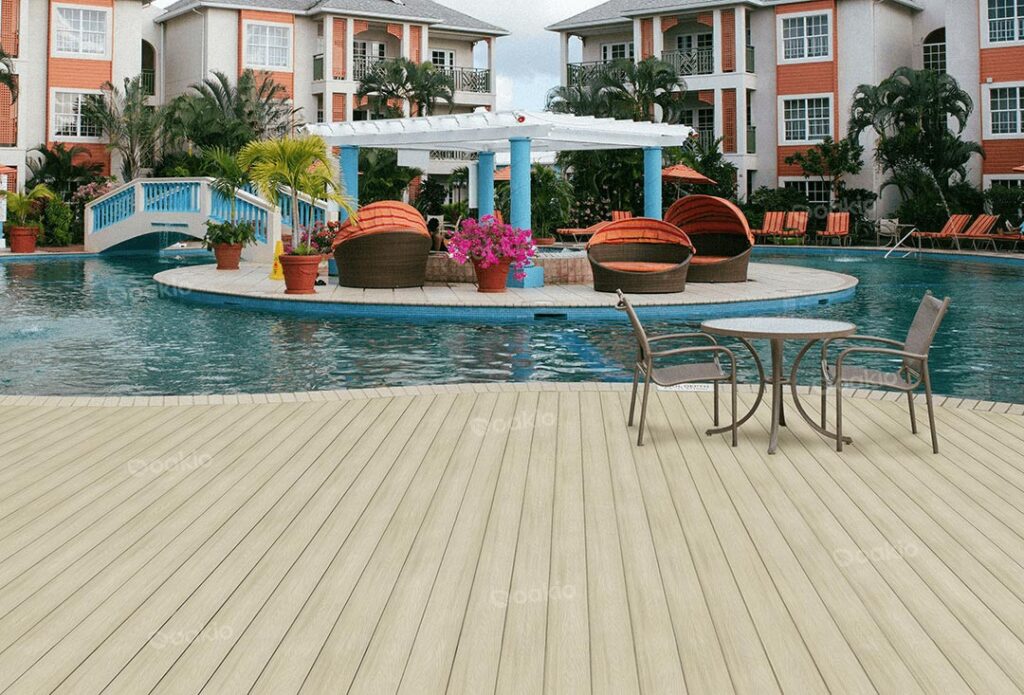
Consider Environmental Factors: The local environment plays a significant role in the behavior of WPC decking. Factors such as direct sunlight exposure, ambient humidity levels, and temperature variations can influence how much the decking material expands or contracts. When installing expansion joints, these environmental aspects should be carefully considered to optimize their functionality.
Follow Manufacturer Guidelines: Lastly, it’s imperative to adhere to the installation guidelines provided by the WPC decking manufacturer. These instructions are tailored to the specific characteristics of their product and will include detailed recommendations on joint spacing, installation techniques, and care. For instance, following the Oakio installation guide for Oakio WPC decking ensures that the expansion joints are correctly implemented for optimal performance and durability of the decking.
By meticulously executing these steps, the expansion joints will effectively accommodate the natural movements of WPC decking, thus safeguarding its structural integrity and maintaining its visual appeal for years to come.
Conclusion
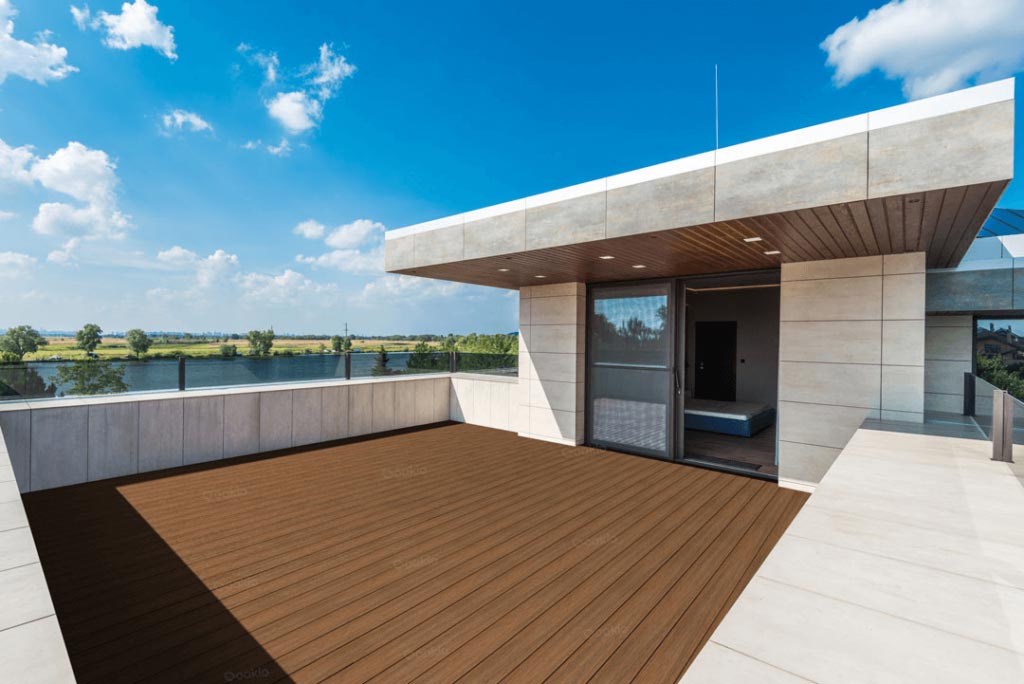
Expansion joints are a vital element in the successful installation and maintenance of WPC decking. They accommodate natural material movements due to temperature changes, preventing structural damage and preserving the deck’s aesthetic appeal. By understanding the factors affecting these joints and adhering to best installation practices, homeowners and contractors can ensure a durable, attractive WPC deck that stands the test of time. This is especially true for high-quality products like Oakio WPC decking, known for its robustness and visual appeal. By following the Oakio installation guide, which provides detailed instructions on the correct placement and installation of expansion joints, homeowners and contractors can ensure that their decking not only withstands temperature variations but also retains its beauty and structural integrity over time. Adhering to these guidelines ensures that the WPC decking performs optimally, making Oakio WPC decking a reliable choice for a long-lasting and visually appealing outdoor space.
Trending Reading
What Are the Differences Between the WPC Board and PVC Board?
[2024 Update] How Long Does WPC Decking Last?
